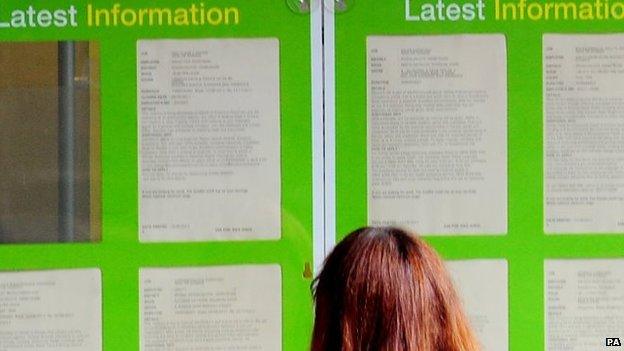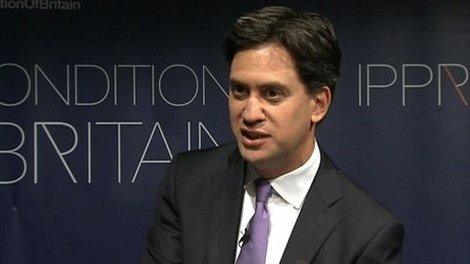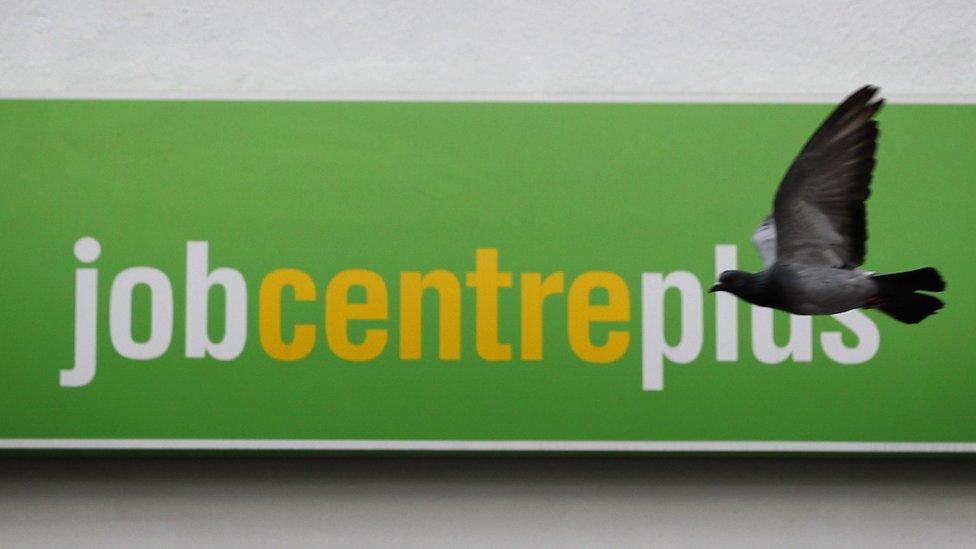Benefit cuts for the young – secret agreement
- Published

Hush hush whisper who dares… there is widespread agreement about the need to cut benefits for young people but it doesn't suit the political parties to admit this so they're trying to keep it secret.
The idea that young people should "earn or learn" rather than claim benefits - or what we used to call "the dole" - is one that Labour and the Conservatives are both signed up to. Yet if you follow party press releases you'd be forgiven for assuming there was a huge disagreement.
Last night Labour released its plan to stop automatically paying Jobseekers Allowance to those under 21 who haven't got A level standard qualifications. The Conservative Party chairman Grant Shapps reacted with a press release condemning the plan, saying "this is just a recipe for more spending on welfare, more borrowing - and more taxes to pay for it."
Now that might make you think they're opposed to the idea. But hold on, wasn't it David Cameron who used his speech at Tory conference last year to say: "We should give young people a clear, positive choice: Go to school. Go to college. Do an apprenticeship. Get a job. But just choose the dole? We've got to offer them something better than that."
A proposal which Labour at the time responded to by saying "This is an empty and a desperate attempt to distract from the fact that there was absolutely nothing in David Cameron's speech to deal with the cost of living crisis facing families."
To make things even more confusing Labour seemed to reject the "learning or earning" idea when it came from their own supporters.
When the left-leaning Institute for Public Policy Research proposed a similar scheme last year Labour's Rachel Reeves said this "is not and will not be our policy… it's not our plan" and "it is totally not my position".
She went further and said that we "should not be blaming them (young people) for Tory failure".
This morning when she announced a watered-down version of the policy she'd previously condemned, the Tories stopped condemning her and instead the employment minister Matt Hancock tweeted "Dear Rachel, imitation is flattery & all that, but you've just announced a weak & more costly version of our policy".
Yes, that's right he was chiding her for adopting a policy which Grant Shapps appeared to be condemning. I learn this morning that there are now government pilot schemes which cut JSA from those under the age of 21 who don't get a GCSE in English and Maths.
If you've not lost the will to live I will spell out a few of the genuine differences between the parties different approaches but first in honour of Paxo - on the morning after the sad night before - can I just have a Paxman-ish harrumph and say "Isn't this preposterous battle of hollow rhetoric what turns people off politics?"
PS: Now for the detail.
The Tories' talk of cutting benefits for the under-25s has not led to action other than those pilot schemes. They blame the Lib Dems for blocking further proposals but it is their own ministers at the Department for Work and Pensions who have pointed out that there would be some serious losers from this policy - the disabled and young families with children to name but two - who would have to be protected. They will spell out their ideas in their manifesto or, possibly, before that at the party conference.
Labour rejects both the Tories' and the IPPR's original idea to cut benefits for the under-25s (including housing benefit) and have decided to restrict the cuts to JSA for under-21s. They have promised to protect young families and the disabled. Not only will they save less money this way, they say they will re-invest those savings in higher benefits for older workers who lose their jobs.
That's why the Tories can condemn a form of welfare reform they're in favour of - because the money saved would not be used to pay down the deficit.
Trust that's all clear...
Update: 12:45 BST
The Tories insist that they really are not in favour of Labour's policy towards the young unemployed. Iain Duncan Smith argues that it is unnecessary and unaffordable to train the young unemployed to A level (or so-called level 3) standard. A huge proportion of young people on JSA don't even have GCSE level qualifications in core subjects like English and Maths, he says, so the priority is to deal with that problem and help them into entry level jobs. What's more, say the Conservatives, families on below average incomes will lose benefit they currently get to pay for this policy.
At least they're now arguing about the substance.
Update 15:50 BST
Now Labour would like me to correct something. There is, they insist, no connection between the savings from cutting JSA and higher benefits for older workers. They are two separate policies: "The first policy is to stop adult out-of-work benefits to young people who don't have qualifications. The £440m this would save would be largely re-invested in a new means-tested training allowance for young people who are seeking to improve their qualifications (who currently get no support at all). This would, the IPPR, estimate, cost £375m with a net saving of at least £65m. The second policy is to extend the time it takes to qualify for contributory JSA to, say, five years. The savings would be reinvested in higher contributory JSA."
- Published19 June 2014

- Published17 April 2014
